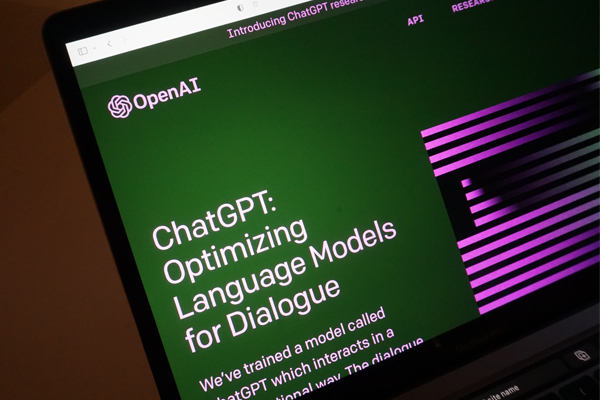New research suggests that employers should use ChatGPT with caution, especially when creating job adverts.
Job adverts written by ChatGPT are 40% more biased than those written by humans, according to research carried out by Inclusive communication platform Develop Diverse. In fact, ChatGPT-generated job ads were particularly biased against disadvantaged ethnicity (42%), physical disabilities (41%), and neurodiversity (41%).
ChatGPT was also 41% likely to show bias against women, compared to just 9% against men. The research randomly selected 7000+ publicly available human-written job adverts across 15 industries, and prompted ChatGPT to create an ad for each position, based on job titles.
HOW TO PREVENT BIAS
“The emergence of ChatGPT can negatively influence companies to undo the work we’ve accomplished around inclusion and diversity in recent years,” highlighted Jenifer Clausell-Tormos, CEO and founder of Develop Diverse. “ChatGPT has its place in the working world but needs a trained human eye. Used alone, it reinforces the biases and stereotypes we are trying hard to remove.”
| Category bias | Inclusivity score*:Human written ads | Inclusivity score*: ChatGPT written ads | GPT increase in bias – relative to human written ads |
| Total | 65 | 39 | 40% |
| Men | 92 | 84 | 9% |
| Women | 66 | 39 | 41% |
| Non-conforming*** | 68 | 42 | 38% |
| Advantaged ethnicity | 77 | 57 | 26% |
| Disadvantaged ethnicity** | 65 | 38 | 42% |
| Young | 76 | 54 | 29% |
| Old | 67 | 42 | 37% |
| Abled | 76 | 54 | 29% |
| Disabled | 63 | 37 | 41% |
| Neurotypical | 76 | 54 | 29% |
| Neurodivergent **** | 63 | 37 | 41% |
*Inclusivity score: How inclusive a text is, ranging from 0-100. 0 indicates non-inclusive, 100 indicates inclusive. Job ads scoring above 90 are considered inclusive.
** Disadvantaged ethnicity: Non-privileged, marginalized, or socially under-represented ethnic groups.
***Non-conforming: People not conforming to gender norms. Example: Non-binary people.
****Neurodivergent: People with brains that work differently from average (neurotypical) people. Examples: ADHD, OCD, dyslexia.






































